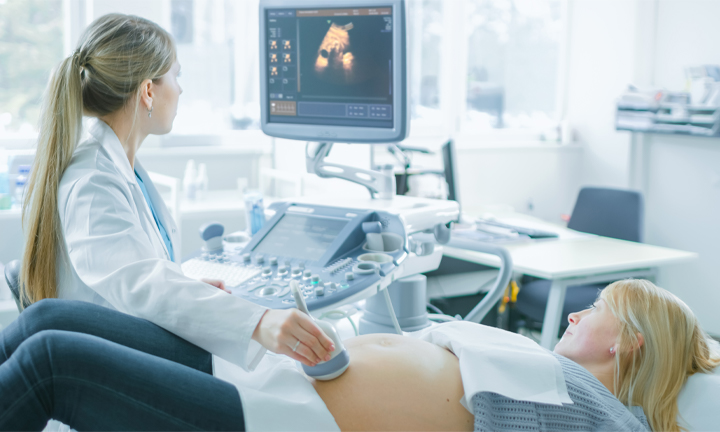Individuals must be overjoyed if they are expecting. One might have also begun to visualize the “pregnancy bump.” Individuals won’t, however, have a large belly throughout the first trimester of pregnancy.
One will have headaches, cramps, and morning sickness. The first time individuals hear the baby’s heartbeat, especially if they have n’t started to show yet, will make everything that a pregnant woman experiences feel true.
One can mistake the pulsing sensation that feel in the womb in a few months for the heartbeat of the unborn child. However, is that actually the infant’s heartbeat or is it something else?
When did the child’s heart begin to beat?
A baby’s heart tube starts to beat on its own by week 5, though parents still can’t hear it. A first-trimester ultrasound will allow the doctor or a qualified sonographer to see the unborn child in order to verify that his heart is beating between weeks 6 and 9 of pregnancy. The projected due date and the number of infants she is carrying will both be confirmed by the ultrasound.
The typical foetal heart rate:
The baby’s heart starts beating 110 times per minute at six weeks. The foetal heart rate will increase to 150–170 beats per minute in just two more weeks. It’s roughly twice as quick as theirs,
The baby’s heartbeat is roughly 170 beats per minute by weeks 9 or 10, and it will gradually slow down from this point on. It will drop to roughly 140 beats per minute by week 20.
A normal foetal heart rate during labour can range from 110 to 160 beats per minute, while there are a number of (often totally normal) reasons why there may be momentary changes outside of this range.

Can Individuals Feel the Heartbeat of The Baby in Their Stomach?
Blood vessels are what cause the pulsing sensation felt in the stomach during pregnancy. If patients experience a pulsing sensation, it is most likely the abdominal aorta, a big artery that transports oxygen-rich blood from the heart to the lower body.
The second and third trimesters of the pregnancy will see a greater prominence of this aortic pulse. During pregnancy, ones blood vessels will be more loosened and there will be an increase in blood volume. Anyone could feel a strong pulse as a result of these changes. It shouldn’t be confused with the infant’s heartbeat, though.
FAQs:
How can One find out the heartbeat of the infant at home?
In bed or when laying on the couch, parents can hear the heartbeat of the infant. Find the baby’s back by feeling around the abdomen. The best area to hear a foetal heartbeat is on the baby’s back. The stomach should feel smooth but firm in this area.
What day of the week does morning sickness begin?
It typically begins at around six weeks of pregnancy and peaks at around nine weeks. While most pregnant women feel better in the second trimester, some experience morning sickness the entire time.
Which area of the breast hurts in the first trimester?
During these early weeks, the nipples for many women are especially sensitive. They can be so delicate to the touch that it hurts to put on a bra or to dry off after a shower.
What symptoms indicate a quiet miscarriage?
A missed miscarriage frequently doesn’t show any symptoms. A person may occasionally have cramping or some brownish-pink or crimson vaginal discharge. When a silent miscarriage occurs, it’s common for the pregnancy symptoms, like breast tenderness, nausea, or fatigue, to persist.
The first trimester is difficult, why?
It’s the body’s way of telling people to take it easy and give it some time to get used to all the amazing changes going on inside. One may experience fatigue as a result of hormonal changes, particularly those involving the hormone progesterone. In the first trimester, this hormone increases significantly.
